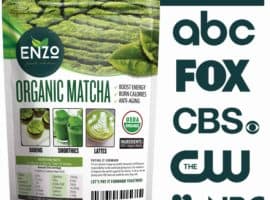All About Catechins – Catechins for Dummy – Catechins 101
What Are Catechins?
Catechins are antioxidants found in great quantity in the leaves of a tea plant known as Camellia sinensis. They are also found in other foods i.e. chocolate, apples, berries, and red wine, but in smaller amounts.
Why Is It Good for You?
According to medical research, catechins are not only beneficial for the health of humans but for plants as well. In laboratory tests, it is found that catechins that are available in tea leaves prevent the growth of cancer cells. Additionally, they inhibit the activity of free radicals. Free radicals are the molecules responsible for causing cellular damage that can lead to cancer. They prevent the absorption of fat from the intestines and help with weight loss. Their benefits are also evident in providing relief from Arthritis pain as well.
Catechin is a powerful antioxidant and antihistamine. It not only prevents cancer by limiting the growth of cancer cells but also reduces the size of tumors. Furthermore, they are helpful in preventing mental disorders, for example, Alzheimer’s disease and Parkinson’s disease. They slow the process of aging by protecting the body from free radical damage. They reduce the risk of heart disorders by dropping the level of cholesterol.
According to provisional research, catechin may also provide additional benefits such as reducing the brain damage caused by strokes (a condition where nerve cells and brain are destroyed because of the deficiency of oxygen in the brain). Although, additional evidence is required to validate these benefits.
How Do You Get Them?
Tea

The best and the rich source of catechins was brewed green tea. With more than 120 milligrams in every 100 grams, which is equal to approximately 3.5 ounces of liquid. Now we learnt that from drinking Matcha (green tea powder) you get 10 times the catechins compare to brewed green tea. Another source is black tea, however, it contains less amount of these antioxidants as compared to green tea, about 25 milligrams in every 100 grams. According to a research, daily intake of green tea can minimize the risk of developing cardiovascular disease and high blood pressure. Additionally, a review paper called “Life Sciences” (published in 2005) concluded that you can lower your risk of developing cancer and neurological diseases as well as improve your general health by simply drinking green tea. On the other hand, tea also contains a certain amount of caffeine, which causes sleeplessness among other other problems. That’s why it is recommended to discuss its use with a doctor before drinking it on regular basis.
Read 9 Benefits of Matcha Green Tea here: http://yo.urenzo.com/9-benefits-of-matcha-you-never-thought-of/
Cocoa

Cocoa is also a rich source of catechins. Cocoa-derive products, for example, chocolate also contains these antioxidants. However, depending on the concentration of cocoa, their amount in chocolate may vary. For instance, there are about 50 milligrams of catechins in every 100 grams of dark chocolate, but in every 100 grams of milk chocolate there are only 8 milligrams of these antioxidants. According to a research at the University of California, consuming cocoa or chocolate is beneficial as it improves your health in general as well as benefits your cardiovascular system. A review published in “Nutrition and Metabolism” in clinical trials concluded that flavonoids like catechins available in chocolate may be protective against stroke and coronary heart disease, although according to authors, larger trials are required to validate this conclusion.
Other Sources

There are many other foods that contain catechins in measurable amounts. Some good examples include blackberries, they contain about 40 milligrams per 100 grams, and cherries and raspberries, which contain 6 and 8 milligrams in every 100 grams, respectively. Pears and apples also contain limited amount of catechins, with 4 and 7 milligrams per 100 grams respectively. Among vegetables, beans are a great source as there are 20 milligrams of catechins in every 100 grams of fava beans. Red wine is a common source of numerous flavonoids, including catechins, in every 100 grams there are about 10 milligrams of these antioxidants available, or 3.5 ounces of liquid.
Tea (Green and Black), red wine, dark chocolate are all great sources of catechin. In fact, it is thought that all the health benefits these foods provide are due to the presence of this antioxidant.
Certain fruits such as black diamond plums, blueberries, blackberries, and white peaches also contain high amount of catechin.
What’s The Recommended Daily Intake?
Most individuals consume green tea for weight loss. For this purpose, the daily intake of about 690mg catechins is recommended. Daily intake of tea (green or black) having 690 mg catechins for twelve weeks results in reduced body fat, which suggests that the consumption of catechins is useful in the improvement and prevention of lifestyle-related diseases, mostly obesity.
Get healthy with Matcha Gree Tea, the king of catechins here or Get one some on amazon




